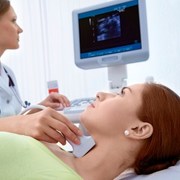Dr. Friedman when diagnosing hypothyroidism, how valuable is medical history and an actual hands-on physical?
Diagnosing Hypothyroidism
If your physician suspects hypothyroidism, he or she will first perform a medical examination to look for evidence that your thyroid level is low. The most important test in making a certain diagnosis of this condition is your TSH blood level. When your thyroid gland fails, your pituitary begins to produce increased amounts of TSH, in an effort to stimulate your thyroid more and return it to normal function. If your thyroid is damaged, it cannot increase its activity and your blood level of TSH rises and remains high. Detecting an increased level of TSH in your blood also provides solid evidence that your hypothyroidism is due to disease within your thyroid gland, and is not a result of inadequate stimulation of your thyroid by a diseased pituitary gland. A word should be said about a dangerous recent trend in the lay press to minimize the importance of thyroid blood tests in the diagnosis and management of hypothyroidism. The thyroid tests available 20 or 30 years ago were simply not specific enough to tell if a person was truly hypothyroid. Very accurate and relatively inexpensive tests are available today, however, and they should always be used by your physician to help make a diagnosis of hypothyroidism. Such a diagnosis should never be based solely on complaints of weight gain, fatigue, or infertility, or on such nonspecific findings as dry skin or a low body temperature. Well-informed physicians do not start patients on thyroid medication until blood tests, and most importantly, the TSH level, confirming the diagnosis are obtained. Blood tests are essential in determining the cause and severity of the hypothyroidism, and in assessing the adequacy of thyroid therapy. The level of the thyroid hormones (T4 and T3) may also be checked, but these tests are less sensitive than the TSH level in making a decision about the diagnosis of primary hypothyroidism or the dose of medication that you might require.
More on Dr. Friedman
Theodore C. Friedman, M.D., Ph.D. has opened a private practice, specializing in treating patients with adrenal, pituitary, thyroid and fatigue disorders. Dr. Friedman has privileges at Cedars-Sinai Medical Center and Martin Luther King Medical Center. His practice includes detecting and treating hormone imbalances, including hormone replacement therapy. Dr. Friedman is also an expert in diagnosing and treating pituitary disorders, including Cushings disease and syndrome.
Dr. Friedman's career reflects his ongoing quest to better understand and treat endocrine problems. With both medical and research doctoral degrees, he has conducted studies and cared for patients at some of the country's most prestigious institutions, including the University of Michigan, the NationaI Institutes of Health, Cedars-Sinai Medical Center, and UCLA's Charles Drew University of Medicine and Science.
Visit Dr. Friedman on the web: http://www.goodhormonehealth.com/





